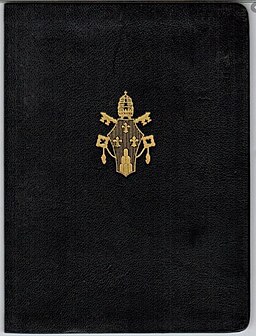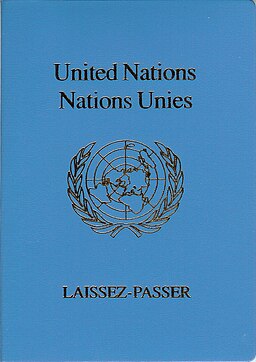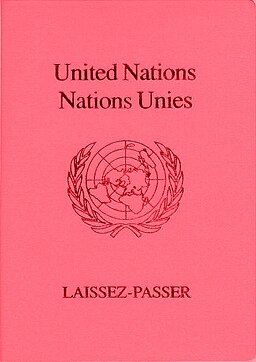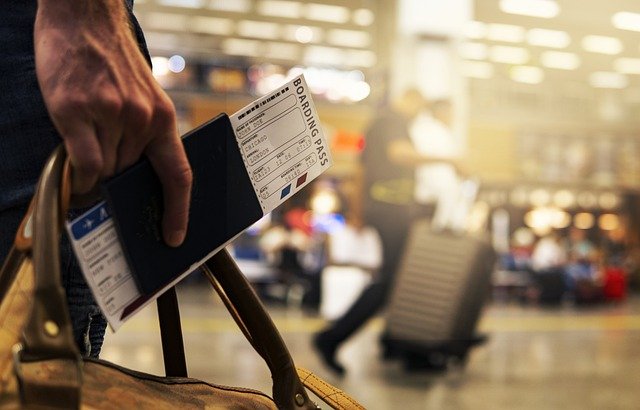Rare Passports in the World
The rare passports in the world hold a unique allure, embodying distinctive privileges or historical significance. These exclusive travel documents, often limited in issuance or bearing exceptional attributes, stand as coveted and remarkable items in the realm of travel documentation.
1. Military Order of Malta
Sovereign Military Order of Malta (SMOM) Passport: This is the world’s rarest passport, with only 500 issued to the highest-ranking members of the Catholic order. It is recognized by 109 countries and offers visa-free travel to 112 countries.
This passport grants specific privileges and immunities to its holders, enabling travel across borders and offering diplomatic status in certain situations. It serves as a symbol of the Order’s sovereignty and allows its members to engage in humanitarian missions and diplomatic activities worldwide.
Read also: Discover the Unmissable: Best Attractions in Malta

The front cover of a contemporary Sovereign Military Order of Malta diplomatic biometric passport. KD, CC BY-SA 4.0, via Wikimedia Commons
2. Vatican City Passport
This passport is issued to Vatican City citizens, including the Pope, cardinals, and other high-ranking officials. It is recognized by 171 countries and offers visa-free travel to 159 countries.
These passports differ from regular travel documents and are recognized as a symbol of Vatican citizenship. While Vatican passports allow for international travel, their issuance is limited and strictly regulated, primarily serving those involved in Vatican-related affairs or missions.

Vatican Passport with the coat of arms of Pope Paul VI. Piotrszmigiel, CC BY-SA 4.0, via Wikimedia Commons
3. British Sovereign Base Areas Passport
This passport is issued to British citizens living in the British Sovereign Base Areas of Akrotiri and Dhekelia in Cyprus. It is recognized by 175 countries and offers visa-free travel to 162 countries.
It is exclusive to residents and individuals associated with the military or administration within these British territories. The passport provides travel rights and identification for those residing or working in the SBAs and is recognized internationally. However, its issuance is limited to individuals directly connected to the SBAs and is not considered a standard national passport.
https://www.reddit.com/r/PassportPorn/comments/13ojscs/entry_stamp_from_cyprus_ercan_airport_and/
4. Monaco Sovereign Prince’s Passport
This passport is issued to Monaco citizens, including the Prince, princesses, and other high-ranking officials. It is recognized by 189 countries and offers visa-free travel to 172 countries.
This exclusive passport, adorned with Monaco’s coat of arms, signifies diplomatic status and is utilized for official visits, international engagements, and diplomatic missions on behalf of the Principality. Its issuance is limited to a select group of dignitaries and individuals representing Monaco’s government interests abroad.
5. San Marino Diplomatic Passport
This passport is issued to San Marino diplomats and their families. It is recognized by 157 countries and offers visa-free travel to 147 countries.
These passports are exclusively granted to diplomats, high-ranking government officials, and authorized representatives conducting official missions or engagements on behalf of San Marino. The Diplomatic Passport signifies diplomatic immunity and grants privileges and immunities as per international protocols, facilitating official travel and engagements with foreign entities and governments.
https://www.reddit.com/r/PassportPorn/comments/b144c1/diplomatic_and_service_passport_of_the_republic/
6. Nansen Passports: A Humanitarian Lifeline
Issued by the League of Nations in the aftermath of World War I, the Nansen Passports were a beacon of hope for stateless refugees. Signed by Fridtjof Nansen, these passports offered vital travel documents for displaced individuals, especially those fleeing the Russian Revolution, providing an invaluable lifeline during a tumultuous period in history.
Named after Fridtjof Nansen, a Norwegian diplomat and humanitarian, these passports aimed to provide legal identification and travel rights to stateless persons, allowing them to cross borders and seek asylum or resettlement in different countries. The Nansen Passports were an early international effort to address the plight of stateless individuals and refugees, offering them a semblance of legal identity and the right to travel during a time of global upheaval and displacement.

A proofprint of the «Nansen Passport» published in France. The passport was issued to Russians, and later on to other refugees who were unable to get ordinary passports. The Nansen Passport was issued on the initiative of F. Nansen in 1922, and was honored by the governments in 52 countries. National Library of Norway, Public domain, via Wikimedia Commons
7. British King’s and Queen’s Messenger Passport: An Elite Credential
The British King’s and Queen’s Messenger Passport (the Corps of King’s Messengers (or Corps of Queen’s Messengers during the reign of a female monarch) represents an exclusive travel document granted to a select cadre tasked with transporting sensitive state documents. These messengers held unique privileges, allowing them to travel unhindered, even during wartime, an unparalleled recognition in passport history.
The Queen’s Messenger Passport holds a prestigious status, exclusively issued to couriers employed by the British Foreign, Commonwealth, and Development Office (FCDO). These skilled messengers, belonging to the Corps of King’s or Queen’s Messengers, facilitate the transportation of highly confidential documents among British embassies, high commissions, and consulates worldwide.
Previously, King’s Messenger passports were exclusive documents issued to diplomatic couriers responsible for transporting HM Government’s official documents. However, starting in 2014, this specialized passport was replaced by a notation within a standard diplomatic passport. Additionally, British embassies globally now issue emergency passports, offering swift assistance to British citizens in need of urgent travel documents.

The British Passport of the Queen’s special messenger (not issued after 2014). Geordie Bosanko, Public domain, via Wikimedia Commons
8. United Nations laissez-passer
The United Nations laissez-passer (UNLP) is an international travel document issued to UN officials and affiliates for official purposes, allowing visa-free entry to numerous countries. Similar to a passport, it allows travel for those associated with the UN and affiliated organizations. This document facilitates efficient travel across borders for those engaged in UN-related activities, providing diplomatic privileges and immunities in accordance with international agreements.
The UNLP provides significant privileges, including immunity from arrest, visa exemptions, and freedom of movement. Holders also receive support like medical care, legal aid, and assistance for returning home. This document enables UN representatives to perform their duties without disruption and ensures the necessary privileges for effective work.
There are two types of United Nations laissez-passers (UNLPs): blue and red.
Blue UNLP
Blue UNLPs (also known as “ordinary UNLPs”) are the most common type of UNLP and are issued to most staff members of the United Nations and affiliated organizations. They are valid for five years and are renewable. Blue UNLP holders are entitled to all of the privileges and immunities granted to UNLP holders, but they may not receive the same level of assistance from the United Nations as red UNLP holders.

United Nations laissez-passer. United Nations, The original uploader was Fisherjs at English Wikipedia., CC BY-SA 3.0, via Wikimedia Commons
Red UNLP
Red UNLPs (also known as “diplomatic UNLPs”) are issued to senior UN officials, such as judges of the International Court of Justice, the Secretary-General of the United Nations, and the Director-General of the International Labour Organization. Red UNLPs are valid for five years and are renewable. Red UNLP holders are entitled to all of the privileges and immunities granted to UNLP holders, and they are also entitled to diplomatic immunity, which means that they cannot be arrested or detained by the authorities of any country, even if they are suspected of a crime. Red UNLP holders are also entitled to more assistance from the United Nations than blue UNLP holders.

Red UNLP. United Nations, Public domain, via Wikimedia Commons
The color of the UNLP is a way of distinguishing between the different levels of privileges and immunities that are granted to UNLP holders. Blue UNLP holders are entitled to the basic privileges and immunities that are necessary for them to conduct their work, while red UNLP holders are entitled to more extensive privileges and immunities that are necessary for them to fulfill their important functions.
Sources: PinterPandai, Daily Mail, News.com.au
Photo credit: JoshuaWoroniecki via Pixabay



